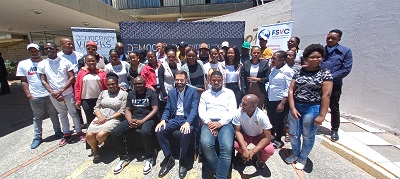By: Thoboloko Ntšonyane
MASERU – In the past, the government would act unilaterally within its structures in drawing up the budget and without involving the public who are critical stakeholders as through their taxes, such budgets can only function.
This approached has been criticized as lacking transparency leading to the national budgets not fully the needs and priorities of the citizens.
This came into light during the Democracy Works Foundation (DWF) two day training that had attracted youth, women and civil society actors in one of the hotels in Maseru last week.
Despite SMMEs (small micro-medium enterprises) having shown potential to be economic and innovation driver they remain excluded in governance affairs. As such, the organization believes that prioritizing public preferences is about the inclusion of citizens in the participation of policy-decision making processes, economic and political instruments such as budget.
The DWF under the ‘Putting Youth and Women at the Centre of Inclusive Economic Growth (PYWEIG) has partnered with the Federation of Women Lawyers Lesotho (FIDA) to implement this European Union (EU) and the Financial Services Volunteer Corps (FSVC).
The facilitator, Dr Alouis Chilunjika told the participants that there is a need for consultation to everyone affected by the policy so that their voices are heard.
To achieve inclusive policy-making, he said “no one” should be left behind regardless of their social, economic and political status.
He added: “People should be able to speak and defend their interests throughout all the stages of the policy”.
Not only are they to be consulted and engaged during the policy formulation, Dr Chilunjika said they ought to be active in assessing its implementation and assessing its outcomes against the proposed aspirations.
One of the participants Mosuoe Thuso Leshota said the training has enhanced his capacity in that he now knows what to do to ensure his business sustainability as well as communicate between himself and other stakeholder.
Leshota said with scarce funding, many business are negatively affected as they cannot be assisted to ensure resilience.
As youth, he said their voices should be heard.
The DWF underscored the need to invest and reengaging the civil society organisations, SMMEs and “marginalized” groups to appreciate issues of participatory governance, participatory budget planning and how to monitor and track the government’s expenditure.
For her part, ‘Mamotheba Maisa reiterated the importance of youth participation in a budget formulation saying that young people know what they need and want.
In Lesotho where youth is reportedly making up majority of the population, Maisa said the country requires their active participation in its affairs.
As young people are going through changing time, she said they need a government that is adaptive adding that the budget formulation needs to be responsive to challenges affecting youth and also appropriate for them.
“Achieving sustainable socio-economic development requires a well-function governance machinery and system that delivers quality services consistent with citizens’ preferences that foster private market-led growth while managing fiscal resources prudently.


